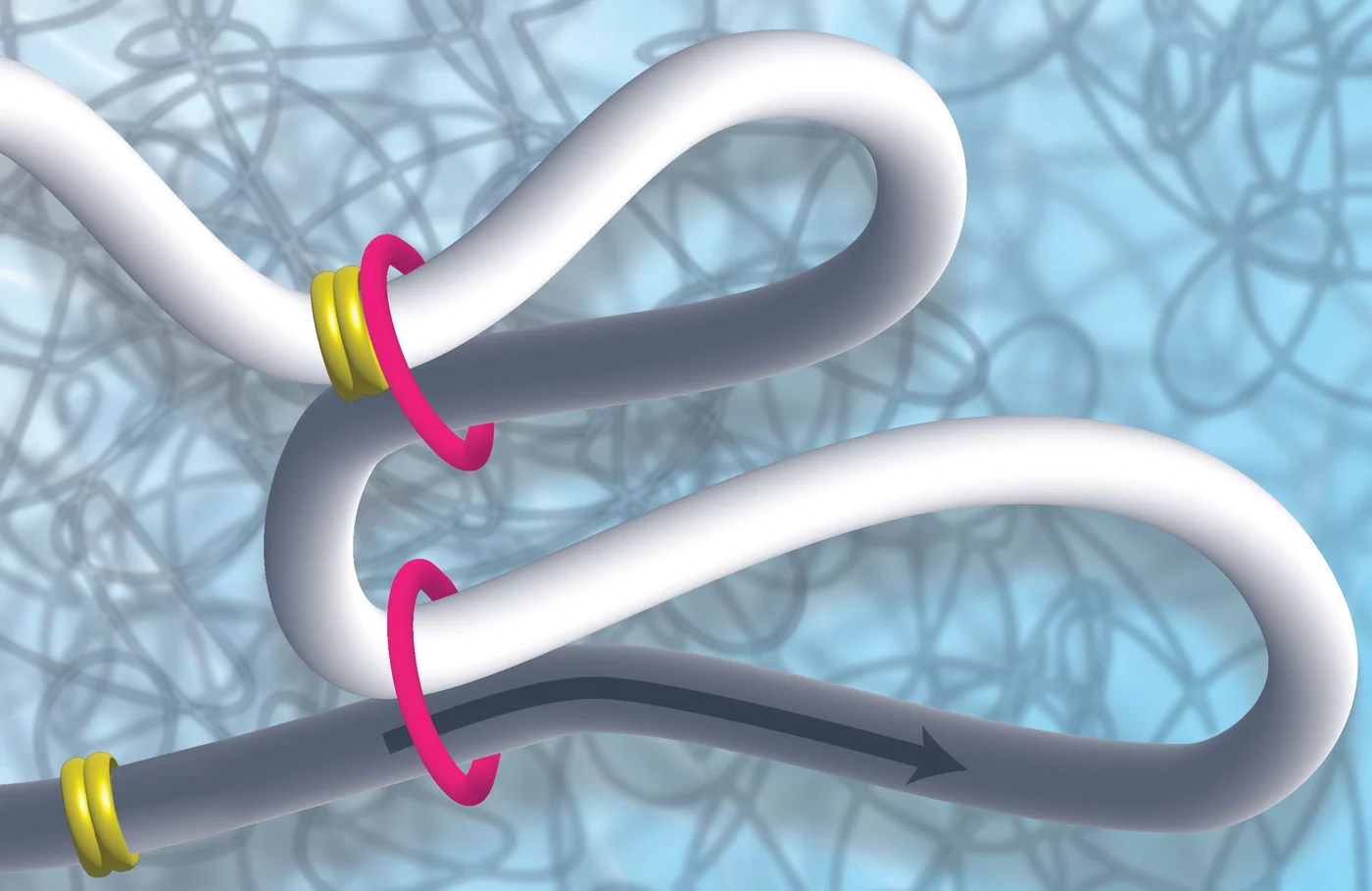MCM molecules impede the formation of DNA loops

The entire genomic material of a cell must be packed into a tiny cell nucleus in such a way, that on the one hand, it can be stored in an organized manner and, on the other hand, it can be transcribed, duplicated or repaired as needed. Different proteins are responsible for space-saving packaging, which can roll up or loop the DNA. Scientists Kikuë Tachibana and Karl Duderstadt from the Max Planck Institute of Biochemistry (MPIB) in Martinsried are investigating the exact task and function of these molecular machines. They discovered that the MCM complex plays an important role in restricting DNA loop formation and thus in the three-dimensional structure of the genome and in gene regulation. The research results were published in the scientific journal Nature.
A DNA molecule is about two meters long and still has to be packed into a tiny cell nucleus. A cell nucleus is about the size of a toner particle from a printer or a fine dust particle. How does it work? How can the genetic information be stored and packaged on the one hand, but read on the other? How is it put into loops? Packaging and unpacking are also dynamic processes that must run quickly and smoothly.
Now Kikuë Tachibana, new director of the department “Totipotency” at MPIB, and her team discovered that a protein complex well known for its function in DNA replication has an unexpected role in genome folding. “During a symposium at MPIB, it emerged that my new colleague Karl Duderstadt and I shared a common interest. We decided to join forces to use complementary approaches to investigate these initial observations at a mechanistic level”. Karl Duderstadt is head of the research group "Structure and Dynamics of Molecular Machines".
